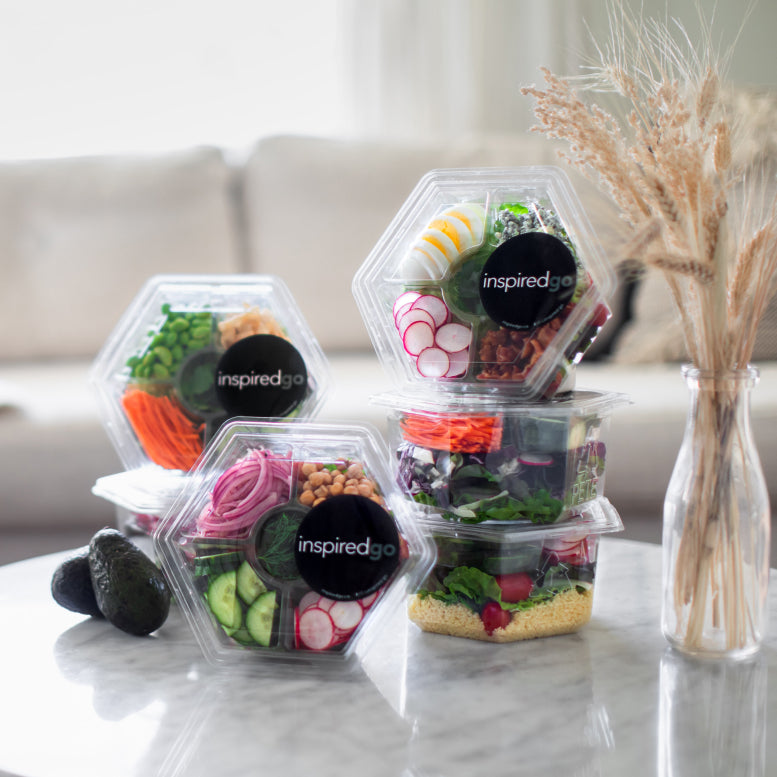Is A Vegan Diet Healthy?
Table of Contents
1. Examining the Health Implications of a Vegan Diet
2. Is a Vegan Diet Healthy?
3. How Can Vegan Meal Delivery Support Weight Management?
4. How Does Inspired Go Make Vegan Eating Healthier?
1. Examining the Health Implications of a Vegan Diet
A vegan diet, which excludes all animal products, has gained significant attention due to its potential health benefits and environmental sustainability. Research has shown that individuals adhering to a vegan diet often consume fewer calories, have lower body mass indexes, and have a reduced risk of developing conditions like heart disease, high blood pressure, and type 2 diabetes. The diet is rich in fiber, antioxidants, and other beneficial plant compounds, offering a plethora of nutrients necessary for optimal health. However, while a vegan diet can be incredibly nutritious, it's important to ensure a well-balanced intake of essential nutrients such as vitamin B12, iron, and omega-3 fatty acids, which are typically found in animal products. Consulting with a healthcare professional or a nutritionist can provide personalized advice for maintaining a balanced vegan diet.
Order fresh salads today →


2. Is a Vegan Diet Healthy?
A vegan diet, when properly planned, can be incredibly healthy and nutritionally balanced. plant-based meals are rich in vitamins, minerals, antioxidants, and fiber, all of which contribute to improved digestion, reduced inflammation, and better overall health. Vegan diets are often lower in saturated fats and cholesterol, which supports heart health and reduces the risk of chronic diseases. However, a balanced vegan diet requires careful consideration of essential nutrients such as vitamin B12, iron, calcium, and omega-3 fatty acids. Vegan meal delivery services address these concerns by offering pre-portioned, nutrient-dense meals designed to cover daily dietary requirements. With expert chefs and dietitians crafting balanced menus, vegan meal delivery provides a reliable way to enjoy the benefits of plant-based eating without nutritional gaps.
Choose your salads and schedule delivery →
3. How Can Vegan Meal Delivery Support Weight Management?
Vegan meal delivery services play a significant role in supporting weight management goals through portion control and nutrient-dense ingredients. Plant-based meals are naturally high in fiber, which promotes satiety and prevents overeating. Proteins from tofu, chickpeas, and lentils offer sustained energy, while complex carbohydrates from grains provide long-lasting fullness. Vegan meal delivery services offer calorie-counted meals tailored to weight loss or maintenance goals, removing the need for tracking or guesswork. Additionally, avoiding overly processed vegan junk food ensures meals remain aligned with health objectives. By offering pre-measured, balanced meals, vegan meal delivery supports sustainable weight management while maintaining variety and satisfaction.
Get fresh salads and snacks delivered →
4. How Does Inspired Go Make Vegan Eating Healthier?
At Inspired Go, nutrition is at the core of every meal, ensuring that customers get the right balance of macronutrients and essential vitamins in every bite. Their vegan dishes include protein-packed legumes, fiber-rich vegetables, and healthy fats, eliminating the common pitfalls of nutritionally imbalanced vegan meals. Unlike some plant-based convenience foods, Inspired Go avoids highly processed ingredients, focusing instead on whole, nutrient-dense options. Each meal is carefully crafted by dietitians and chefs, ensuring that customers receive the necessary nutrients for energy, well-being, and long-term health. With detailed nutritional labeling and transparent meal planning, Inspired Go makes healthy vegan eating effortless.
Try our fresh, ready-to-eat salads →
Frequently Asked Questions
Eating healthy without cooking is achievable by incorporating ready-to-eat nutritious options into your diet. Pre-prepared salads, fresh fruit, nuts, yogurt, and meal delivery services offering balanced meals are excellent choices. Look for meals high in fiber, protein, and healthy fats while minimizing processed ingredients. This approach ensures you maintain a nutritious diet even with a busy lifestyle or lack of cooking time.
Eating healthy on a budget involves planning meals around affordable, nutrient-dense ingredients. Prioritize staples like whole grains, beans, and seasonal vegetables, which are both inexpensive and nutritious. Opt for meal prep services or delivery plans that offer cost-effective options for healthy eating. Buying in bulk, reducing waste, and preparing meals at home also significantly reduce costs while maintaining balanced nutrition.
A healthy diet is one that emphasizes whole, unprocessed foods like fruits, vegetables, lean proteins, whole grains, and healthy fats. It provides the necessary nutrients for energy, growth, and disease prevention while limiting added sugars, saturated fats, and highly processed foods. A balanced diet supports physical and mental well-being and can be tailored to meet individual nutritional needs.
To eat more healthily, focus on gradually incorporating whole foods into your meals. Start by adding more vegetables to your plate, swapping refined grains for whole grains, and opting for lean protein sources like fish or legumes. Stay hydrated and avoid sugary beverages. Small, consistent changes can lead to long-term improvements in dietary habits without feeling restrictive.
Eating healthy is essential for maintaining overall health and well-being. A balanced diet reduces the risk of chronic diseases such as diabetes, heart disease, and obesity while supporting energy levels, mental clarity, and immune function. Consuming nutrient-dense foods provides your body with the vitamins and minerals it needs to function optimally, contributing to a longer, healthier life.

